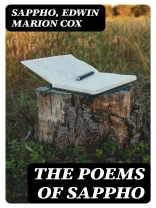The Poems of Sappho presents an intricately woven anthology that captures the essence of ancient Greek lyricism and feminine poetic voice through its masterful collection of translated verses. Spanning themes such as love, longing, and the divine, this anthology showcases the vivid emotional landscapes characteristic of Sappho’s oeuvre. The translations, guided by Edwin Marion Cox, strive to preserve the lyrical beauty and rhythmic elegance of the original works, creating a rich tapestry of transcendent themes that have influenced countless generations. Within this collection, poetry enthusiasts will uncover the diverse literary styles, from fragmentary musings to complete lyrical pieces, that highlight the enduring appeal and complexity of Sappho’s legacy. The contributors, centered on the timeless voice of Sappho, offer a unique vantage point into her influence on the ancient and modern literary realms. Understanding Sappho’s prominence in the context of the Hellenistic culture provides readers with insight into how her articulation of personal and universal themes defied the patriarchal confines of her time. Cox’s dedication to maintaining the poet’s authenticity serves as a testament to his scholarly commitment, providing a bridge that connects the reader to the past while aligning with contemporary literary movements that celebrate diversity in literary expression. Ideal for both scholars and newcomers to ancient Greek literature, The Poems of Sappho offers more than a glimpse into the world of one of history’s greatest poets. It serves as an educational journey through time, presenting an invaluable compilation of perspectives that enrich one’s understanding of poetic evolution. The anthology extends an invitation to explore the nuances of historical context, transformative language, and the enduring power of poetry, prompting a dialogue that transcends the boundaries of time and space, fostering a deeper appreciation for the multifaceted gems within Sappho’s poetic repertoire.
About the author
Sappho, an archaic Greek poet from the island of Lesbos, was active during the late 7th and early 6th centuries BCE. Her poetry, contemporaneous with the likes of Alcaeus, is renowned for its emotional depth and lyrical beauty, exploring themes of love, desire, and the reflections of the human soul. Although much of her work only survives in fragments, Sappho’s contributions to the literary canon are invaluable, having been compiled into nine volumes in the Library of Alexandria, as noted by ancient sources. Her surviving work, albeit limited, was meticulously collected and translated in ‘The Poems of Sappho, ‘ providing readers with a window into the enigmatic world of a woman whose personal life remains largely a mystery, yet whose literary voice echoes through the ages. Pioneering in her expressive use of the first-person narrative, Sappho’s verse was predominantly composed in the meter that now bears her name—the Sapphic meter—exhibiting immense control over language and form. Celebrated by Plato as ‘the tenth Muse, ‘ Sappho’s influence can be traced throughout subsequent generations of writers and poets who have sought to emulate her passionate and evocative style. In the corpus of Greek literature, she stands as an icon, not only for her contributions as a female voice in a predominantly male-dominated canon but also for the universal human experiences she articulates in her poetry.












